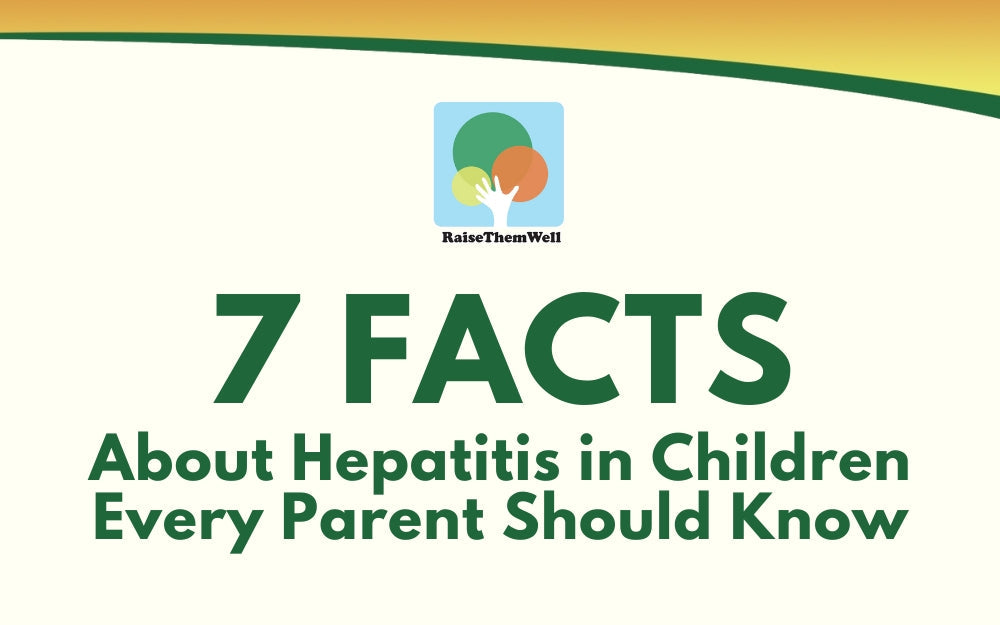In the last two years, infections have certainly taken our community by surprise, so much so that we are even seeing an unexpected increase in hepatitis cases in children. Typically, acute, severe cases of hepatitis in children are rare and often unexplained. Oddly, some of the cases we’re seeing with this outbreak seem to be linked to a virus called Adenovirus, which is not even known to cause hepatitis. (World Health Organization)
7 Hepatitis Facts
1. What is hepatitis?
Hepatitis is simply an inflammation of the liver. We most commonly think of hepatitis as being triggered by infection, but it can also be autoimmune or toxin driven. With hepatitis, the liver is inflamed, and liver function is compromised. Some of the many compromised functions include eliminating toxins, breaking down drugs, utilizing core nutrients such as protein derivatives, and storing energy in the form of glycogen.
2. How many types of hepatitis are there?
The three main types of hepatitis are Infectious, Autoimmune, and Alcoholic. Hepatitis in adults is most commonly triggered by viruses, including Hepatitis B, Hepatitis A, Hepatitis C, and Hepatitis D, and drinking excessive alcohol. Autoimmune hepatitis is much less prevalent.
3. What are the most common forms of hepatitis in children, and is there a new type?
The most common forms of hepatitis in children are viral etiology, such as Hepatitis B, Hepatitis A, and Epstein Barr Virus (EBV, also known as Mononucleosis). EBV is a common virus in childhood, yet it rarely causes hepatitis compared to the number of cases of mild illness. Many young children with acute EBV experience a mildly inflamed throat, are not tested and are never aware they had the virus.
In October and November of 2021, we had a surge in children hospitalized for hepatitis that were positive by a blood test for an upper respiratory virus called Adenovirus. This seemed to imply that this strain of adenovirus was inducing hepatitis.
After further investigation, it was discovered that the adenovirus was not detectable in the liver tissue. So the adenovirus particle was not directly attacking the liver. As a result, it has been proposed that Covid plays a role in the development of hepatitis when exposed to Adenovirus. Unfortunately, not all of the children were tested for Covid, so data is not available to confirm this hypothesis, and further investigation is needed.
4. How hepatitis is spread
The common forms of hepatitis are spread in differing ways:
Hepatitis B is contracted through blood exposure, such as an emergency blood transfusion (unscreened blood) or sexual intercourse.
Hepatitis A is contracted through a fecal-oral route meaning feces is present on something placed in the mouth, usually from contaminated food.
EBV, also known as the kissing disease, is spread through saliva; when the infected person’s saliva is transmitted to the oral or respiratory opening of another person.
5. What are the signs of hepatitis?
The most common symptoms of hepatitis are fever, fatigue, nausea, vomiting, and abdominal pain. More moderate to severe cases may also experience a lightening of stools to a tan color, darkening of urine, joint pain, and yellowing of the skin, known as jaundice.
Unfortunately, the symptoms of mild hepatitis are very similar to symptoms of common “stomach” viruses. Most have an increase in temperature and loss of appetite, followed by nausea and vomiting. However, “stomach” viruses often progress to diarrhea.
6. What to do if you think your child has been exposed or is showing signs of hepatitis
If you feel your child’s symptoms are moderate or severe, or you see a change in skin color to a more yellow appearance, it is prudent to make a trip to your pediatric provider. The good news is a blood test to evaluate liver enzymes is very easy and affordable. If liver enzymes are elevated, hepatitis will be suspected.
7. What can I do from an Integrative Medicine perspective?
In Integrative Medicine, we often focus on strengthening the liver as it is one of the most essential ways to detox from the many insults in our environment. There are beautiful herbs that support the liver in this process, such as milk thistle and chlorella (taken with the direction of your provider, of course.) Eating a diet rich in amino acids such as glycine and sulfurophanes such as broccoli is also extremely beneficial.
May everyone stay well and warm in this winter season. If you need an Integrative Medicine doctor to help your family through all the winter bugs and blues, please come visit me at Robinhood Integrative Medicine. We are a medical home here to help.
About Dr. Nicole Craven

Dr. Nicole Craven is an integrative medicine pediatrician and a global holistic health educator treating patients at Robinhood Integrative Health in Winston-Salem, North Carolina. She has more than 18 years of experience helping patients achieve their best health through nourishment for improved cellular function, medical-grade supplementation, herbal medicine, and gut-immune-brain health.

